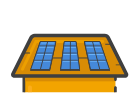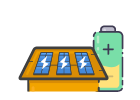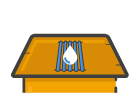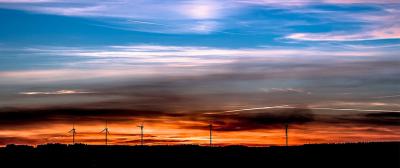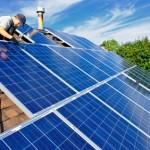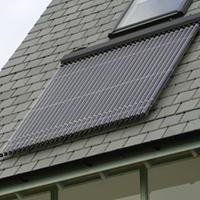COVID19 Lockdown Boosts Solar Panel Performance
The COVID19 lockdown has cut our emissions and cleared a significant amount of pollution from the air. While this has led to unprecedented levels of solar energy production, the renewable industry is still one of many affected by manufactured and supply chain challenges.
The COVID19 pandemic is a global crisis affecting 150 countries and, while it's likely that we will be facing new challenges and feeling its impact on our society and economy for many years to come, its effect on our natural environment is already evident.
With the majority of aeroplanes grounded, fewer vehicles on the road and industry slowing in many sectors, air pollution has been reduced. This has meant that more sunlight has been able to reach our solar PV panels resulting in a massive boost in solar power production. In addition, because the lockdown and shutting of businesses, demand for renewable energy has fallen considerably. EDF, the owner of the Sizewell C nuclear power station in Suffolk, is being paid millions of pounds to run it at 50% capacity to avoid blackouts from oversupply.
According to the Centre for Research on Energy and Clean Air, the improvement in air quality in April alone as a result of the coronavirus lockdown has led to a 40% reduction in nitrogen dioxide while tiny particulate matter is down by 10%. Add in the fact that May 2020 was the sunniest month since records began with 266 hours of sunshine, and the result is that solar output records have been broken in a big way. Even people with old, less efficient solar panel systems on their roofs are reporting record solar production due to the cleaner air and increased sunshine.
For homeowners and businesses already benefiting from solar power there are likely to have been significant savings on electricity costs during this time. With solar panels priced cheaper than ever before and battery storage now a realistic option for many, it's possible that many others will now consider investing in solar panels for themselves. There are record numbers of subsidy-free, commercial-scale solar farms in the planning pipeline.
However, the lockdown has also presented the renewable industry with challenges and delays including supply chain disruptions, unavailability of manpower and issues in project financing. The sector is heavily reliant on imports from other regions with 40% of the supply chain coming from China and other Southeast Asian countries such as Vietnam and Thailand.
The US and Europe, in particular, rely mainly on low-cost solar photovoltaic (PV) modules and cells from China includingTrina Solar, Yingli, Hanwa, Jinko and Rene Solar. These suppliers provide more than 50% of the supplies. The pandemic has meant that manufacturing of components and equipment needed in solar production has halted resulting in a massive backlog of orders.
Find local, MSC certified Solar Installers
Start your quote
Find local, MSC certified Solar Installers






